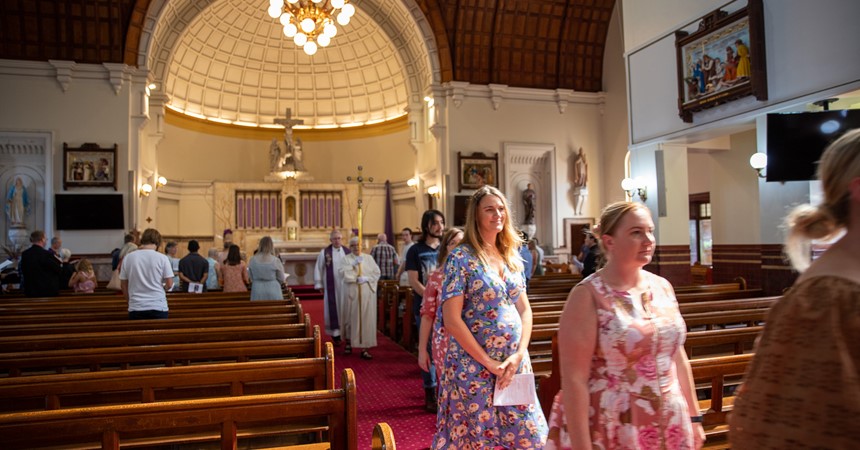Like many Catholics who have grown up in the Church there are numerous elements that we may take for granted. Before I started writing this article, I asked several people what they thought the term Mass meant. It was interesting how many were not sure or thought it simply meant an assembly of people. If we dig a little deeper the Mass or missa can take on a whole new perspective, and one in which we are called to act upon, bear witness to and go forth. In The Order of Mass in the Roman Missal (2011), the only place that the term Mass is used is in the dismissal in the Concluding Rites when we may hear the presider say, “the Mass is ended” (n.144).
Since being exposed to the ‘workings’ of the Mass and liturgy as a whole, I have come to have a greater appreciation for the liturgical life of the Church. I really needed to learn the true meanings and translations of words. What was their intended purpose? Investigating the word Mass has certainly become a journey of discovery, and a challenge to think differently about what it means to go forth and be blessed at the end of the Mass. This is important. Here’s why.
The word originally comes from the Latin word missa. Before Vatican II this word was part of the dismissal at Mass, "Ite, missa est". There are a few different translations but essentially it means ‘go, it has been sent’. ‘It’ in this instance relates to the Church, that is, you and I and all the faithful. It carries a sense of mission. So, what are we being sent forth to do? Jesus lays down that challenge in the Gospel of John 20:21:
“As the Father has sent Me, so I send you” [NRSVCE]
The entirety of the Mass is set up to assist us as we go forth. It feeds the faithful in body and soul. In the Liturgy of the Word, as the Constitution on the Sacred Liturgy [CSL](1963) states, the “treasures of the bible are to be opened up more lavishly, so that richer fare may be provided for the faithful at the table of God's word” (n. 51) . Just as the faithful are fed on God’s word so too are they fed on the gift of the Eucharist and are sent forth to bring the fruits of that sacrificial gift to the world. They are blessed to be strengthened as a blessing to others. The word for that action, and way of life, of being sent or going forth, is mission (the mittere).
If we are not full, conscious, and active participants in the liturgy we will not take away the nourishment from the table of God. To be sent into the world as Jesus has commissioned us to, we need this nourishment to be the Body of Christ, our vocation to bring his message to others in our daily lives [cf. Catechism of the Catholic Church (2000), n. 1332). Pope Francis, in his message for World Mission Day 2022, also emphasises this call to mission in response to the dismissal:
“Christ’s Church will continue to “go forth” towards new geographical, social and existential horizons, towards “borderline” places and human situations, in order to bear witness to Christ and His love to men and women of every people, culture and social status.” (n.3)
If we don’t hear the words ‘Go forth’ we might hear, “go and announce the Gospel of the Lord” or “go in peace, glorifying the Lord by your life.” Each encouraging us in the mission life of the Church.
So, we are not just leaving Mass. We are going out into the world, sent forth by Jesus as his body as he has commanded us to do. We take with us the Gospel, peace and the love of God to others.
How will you mission to others today?
Follow mnnews.today on Facebook.

